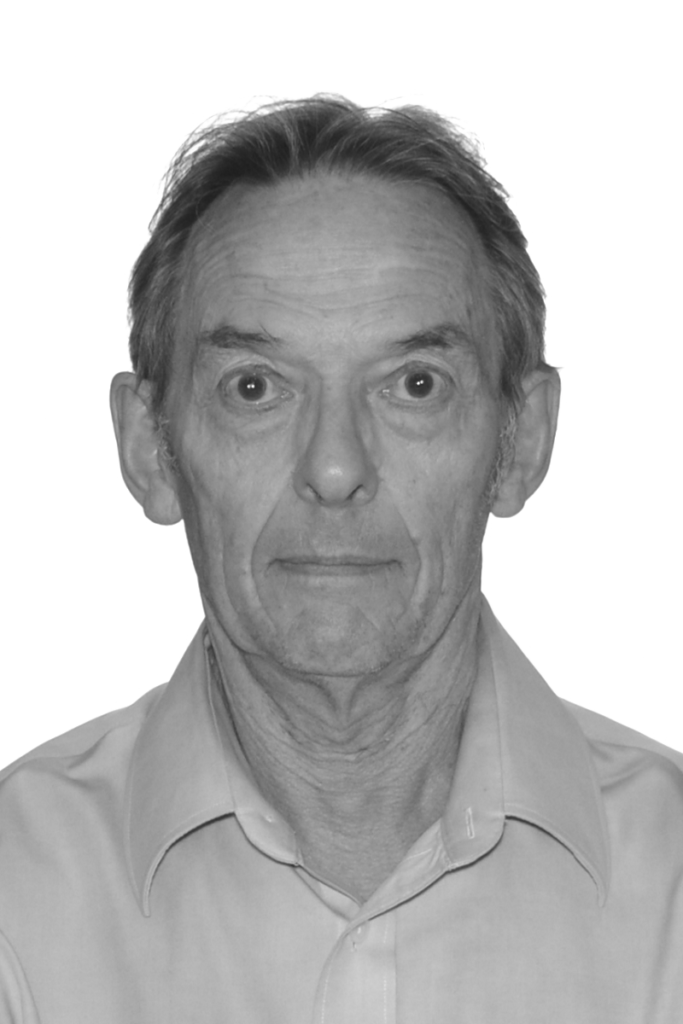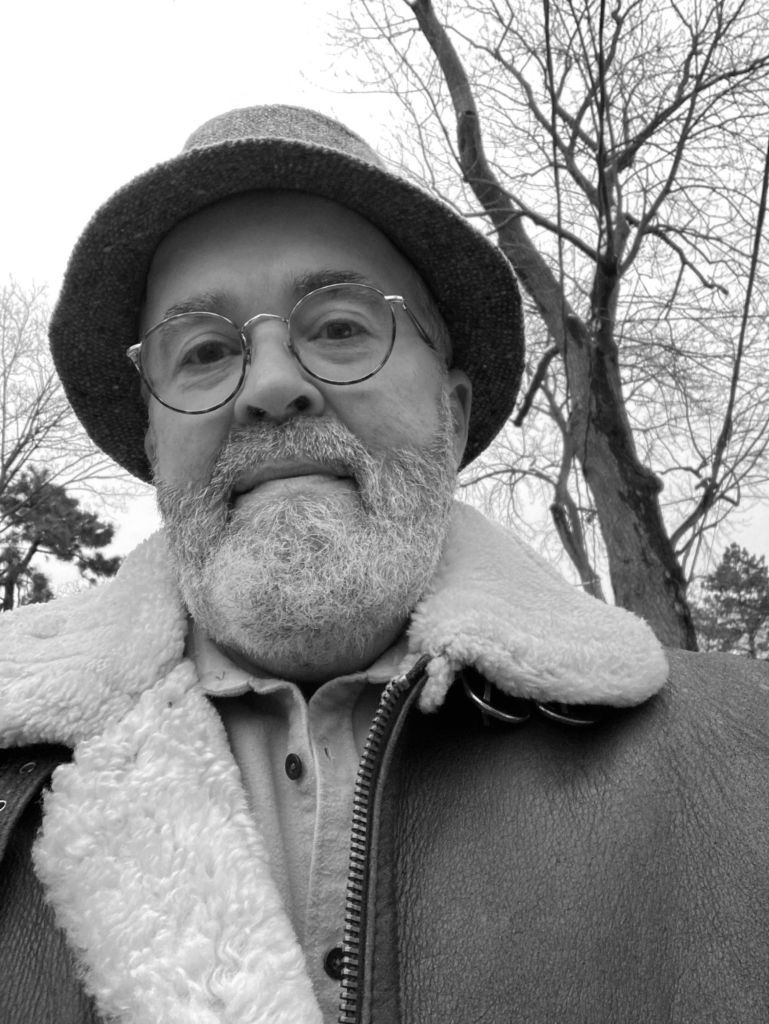About
[I]f the technological Singularity can happen, it will.
—Vernor Vinge
With the advent of ChatGPT-4, discussions surrounding the possibility of AGI——artificial general intelligence possessing the ability to perform tasks at the same level as humans——are resurfacing in academia. For instance, Cornell University’s recent study, Sparks of Artificial General Intelligence, considers how experiments conducted with GPT-4 are indicative of a practical and theoretical basis upon which such intelligence might arise. The possibility of AGI is integrated with that of The Singularity—a hypothetical event wherein humanity is unable to reverse, or even control, the growth of AI as such—an event which will have radical implications on aspects of humanity we merely take for granted. This workshop, held at the Centre for the Study of Theory and Criticism at Western University, will convene scholars and artists to discuss the implications of AGI, The Singularity, and notions of accelerationism in theory, politics, and the arts.
As traditional modes of rigorously transcendental thought rear their heads, an “opaque wall across the future,” à la Vernor Vinge, has stymied previous attempts to think beyond the human. That being said, the resurgence of speculative philosophy following Quentin Meillassoux’s After Finitude (2008) has prompted renewed attempts to stretch the human to its epistemological breaking point. Responses to Meillassoux’s problem of how to escape the ‘Kantian correlate of thinking and Being’ include turns to mathematics (Meillassoux and Badiou), fiction(ing) and future building (in post-CCRU theorists and SF authors), aesthetic and poetic subjective dis-solution (Ireland and Siratori), and a commitment and re-affirmation of philosophical realism (Harman and DeLanda), to name but a few examples. Philosophy once again has the theoretical tools necessary to think the irreversibly changing and distorting human subject——a subject intimately tied to rapid (and perhaps uncontrollable) technological advances.
It is in the vein of the aforementioned thinkers and modes of thought that the Hyperstitional Research Syndicate (HRS) presents Accelerated Ad(E)vent: Subjectivity and Aesthetics Approaching the Singularity, a two-day event from the 24th–25th of May 2024 to address the following questions: 1) how does the approaching Singularity alter ideas of subjectivity?; 2) how does one come to terms with the aesthetics of a technologically dominated future?
The aim of this workshop is to bring together thinkers working in fields as diverse as philosophy, comparative literature and science fiction studies, musicology, affect studies, and graphic design (for example)——thinkers who are simultaneously of the future yet situated in the present——to look at current technological trajectories and future histories, extrapolating them as far as possible. By drawing out and expanding upon tendencies in the present——and in turn, using the results to problematize questions of subjectivity and aesthetics——we hope to begin to ‘make sense’ of a future that is almost unthinkable.
Information
Days: May 24th–25th of 2024
Times: 10am–5:30pm
Location: Western Interdisciplinary Research Building, Room 3000
Presenters

Virginia L. Conn
Virginia L. Conn is a lecturer at Stevens Institute of Technology and the managing editor of the SFRA Review. She researches depictions of the “new socialist human” in science fiction and how those depictions guided policy decisions in Mao-era China, Soviet Russia, and East Germany. Her work on sinofuturism has appeared in Vector, World Futures Review, the SFRA Review, The Routledge Handbook of Cofuturisms, and elsewhere, and she is the co-editor of the first collection of essays on sinofuturism to be published in Chinese, 中华未来主义:学术册子系列. She is in the process of finalizing her first monograph, The Body Politic: Socialist Science Fiction and the Embodied State.
Eldritch Priest
Eldritch Priest writes on sonic culture, experimental aesthetics, daydreams, and the philosophy of experience from a ’pataphysical perspective. He is Associate Professor in the School for the Contemporary Arts at Simon Fraser University. Eldritch is also a composer and improviser, as well as a member of the experimental theory group “The Occulture.” He is the author of several essays and books including Boring Formless Nonsense: Experimental Music and the Aesthetics of Failure (Bloomsbury, 2013) and most recently, Earworm and Event: Music, Daydreams, and other Imaginary Refrains (Duke University Press, 2022).


Luciana Parisi
Luciana Parisi’s research is a philosophical investigation of technology in culture, aesthetics, and politics. She is a Professor at the Program in Literature and core faculty in the Graduate Program of Computational Media, Arts & Cultures at Duke University. She was a member of the CCRU (Cybernetic Culture Research Unit) and is a co-founding member of CCB (Critical Computation Bureau). Her investigation of evolutionary theories, biotechnology, and the question of sex are published in Abstract Sex: Philosophy, Biotechnology and the Mutations of Desire (Continuum, 2004). Her research on computation and aesthetics in the context of digital architecture and design is in Contagious Architecture: Computation, Aesthetics and Space (MIT Press, 2013). She is currently completing Automating Philosophy: Instrumentality and Critique in Technoculture.
Nick Dyer-Witheford
Nick Dyer-Witheford, a Professor in the Faculty of Information & Media Studies at the University of Western Ontario, is the author of Cyber-Marx: Cycles and Circuits of Struggle in High Technology Capitalism (University of Illinois Press, 1999) and Cyber-Proletariat: Global Labour in the Digital Vortex (Pluto Press, 2015), and has also written on the video and computer game industry, the uses of the Internet by social movements, and theories of technology. Two recent books are co-authorships: with Svitlana Matviyenko, Cyberwar and Revolution: Digital Subterfuge in Global Capitalism (University of Minnesota Press, 2019), and, with Atle Mikkola Kjøsen and James Steinhoff, Inhuman Power: Artificial Intelligence and the Future of Capitalism (Pluto Press, 2019).


Gary Genosko
Gary Genosko, a Professor of Communication and Digital Media Studies at Ontario Tech University, is a scholar of Technoculture in the lineage of Marshall McLuhan, Jean Baudrillard, and Félix Guattari. His work has sought to examine the relationship between the aforementioned figures to changing régimes of semiotics in ‘late-modernity,’ as formerly solid codes melt into air and rapid technological advancements shift systems of meanings and subjectivities. He has published two introductions to Félix Guattari: An Aberrant Introduction (Bloomsbury, 2002) and A Critical Introduction (Pluto Press, 2009), while his most recent book, Critical Semiotics: Theory, from Information to Affect (Bloomsbury, 2016) seeks to blend two fields of study not typically heard in the same breath: linguistics / semiology and affect theory. He is currently working on a monograph on Marshall McLuhan’s collaborator, the painter and exhibition designer, Harley Parker.
Marie-Pier Boucher
Marie-Pier Boucher is an Assistant Professor at the Institute of Communication, Culture, Information and Technology and at the Faculty of Information at the University of Toronto. She is co-editor of Space Feminisms: People, Planets, Power (Bloomsbury, 2024), Being Material (MIT Press, 2019), Heteropolis (2013), and Adaptive Actions Madrid (2010). She has exhibited collectively at Ars Electronica (2023 and 2021), Mutek (2021), the Rotterdam Architecture Biennale (2022), Centre George Pompidou, Paris (2020), Tokyo Wonder Site (2014), Leonard & Bina Ellen Gallery, Montreal (2010), and the Madrid Biennale (2010). Her research residencies include: NASA and Johnson Space Center, the Banff Center, the Max Planck Institute for the History of Science, and SymbioticA.

Program
Friday, May 24th
10:00am⠀⠀⠀⠀⠀Check In
10:45am⠀⠀⠀⠀⠀Introductory Remarks
Session I
11:00am⠀⠀⠀⠀⠀Virginia L. Conn
11:45am⠀⠀⠀⠀⠀Respondents: Gigi Wong (FIMS) and ⠀⠀⠀⠀⠀⠀⠀⠀⠀⠀ Peter Heft (Theory & Criticism)
12:15pm⠀⠀⠀⠀⠀Q&A and Discussion
Break and Lunch
Session II
1:45pm⠀⠀⠀⠀⠀Luciana Parisi
2:30pm⠀⠀⠀⠀⠀Respondents: Christopher Maligec (Computer ⠀⠀⠀⠀⠀⠀⠀⠀⠀⠀ Science) and Carson Johnston (Philosophy)
3:00pm⠀⠀⠀⠀⠀Q&A and Discussion
Break
Session III
3:45pm⠀⠀⠀⠀⠀Gary Genosko
4:30pm⠀⠀⠀⠀⠀Respondents: Lennon Needham (Theory & ⠀⠀⠀⠀⠀⠀⠀⠀⠀⠀ Criticism)
5:00pm⠀⠀⠀⠀⠀Q&A and Discussion
5:45pm⠀⠀⠀⠀⠀Closing Remarks
Saturday, May 25th
10:00am⠀⠀⠀⠀⠀Check In
10:45am⠀⠀⠀⠀⠀Introductory Remarks
Session I
11:00am⠀⠀⠀⠀⠀Eldritch Priest
11:45am⠀⠀⠀⠀⠀Respondents: Daniel Arauz Nuñez ⠀⠀⠀⠀⠀⠀⠀⠀⠀⠀ (FIMS) and Anemily Machina (Computer ⠀⠀⠀⠀⠀⠀⠀⠀⠀⠀ Science)
12:15pm⠀⠀⠀⠀⠀Q&A and Discussion
Break and Lunch
Session II
1:45pm⠀⠀⠀⠀⠀Nick Dyer-Witheford and Molly Bliss
2:30pm⠀⠀⠀⠀⠀Respondents: Cynthia Lam (GSWS) and ⠀⠀⠀⠀⠀⠀⠀⠀⠀⠀ Vinay Sharma (Theory & Criticism)
3:00pm⠀⠀⠀⠀⠀Q&A and Discussion
Break
Session III
3:45pm⠀⠀⠀⠀⠀Marie-Pier Boucher
4:30pm⠀⠀⠀⠀⠀Respondents: Brendan Brown (Theory & ⠀⠀⠀⠀⠀⠀⠀⠀⠀⠀ Criticism) and Skylar Izzard (Theory & ⠀⠀⠀⠀⠀⠀⠀⠀⠀⠀ Criticism)
5:00pm⠀⠀⠀⠀⠀Q&A and Discussion
5:45pm⠀⠀⠀⠀⠀Closing Remarks

Registration
Sponsors
Sponsors for this event include: The Centre for the Study of Theory and Criticism, The Academic Joint Fund (issued by Western Research, the Society of Graduate Students, and the School of Graduate and Postdoctoral Studies), the Faculty of Arts & Humanities, the Faculty of Information & Media Studies, the Faculty of Social Science, the Brain and Mind Institute, the Rotman Institute of Philosophy, and the Departments of Computer Science, Economics, French, Gender, Sexuality, and Women’s Studies, History, Languages and Cultures, Marketing (at Ivey Business School), Philosophy, and Visual Arts.
